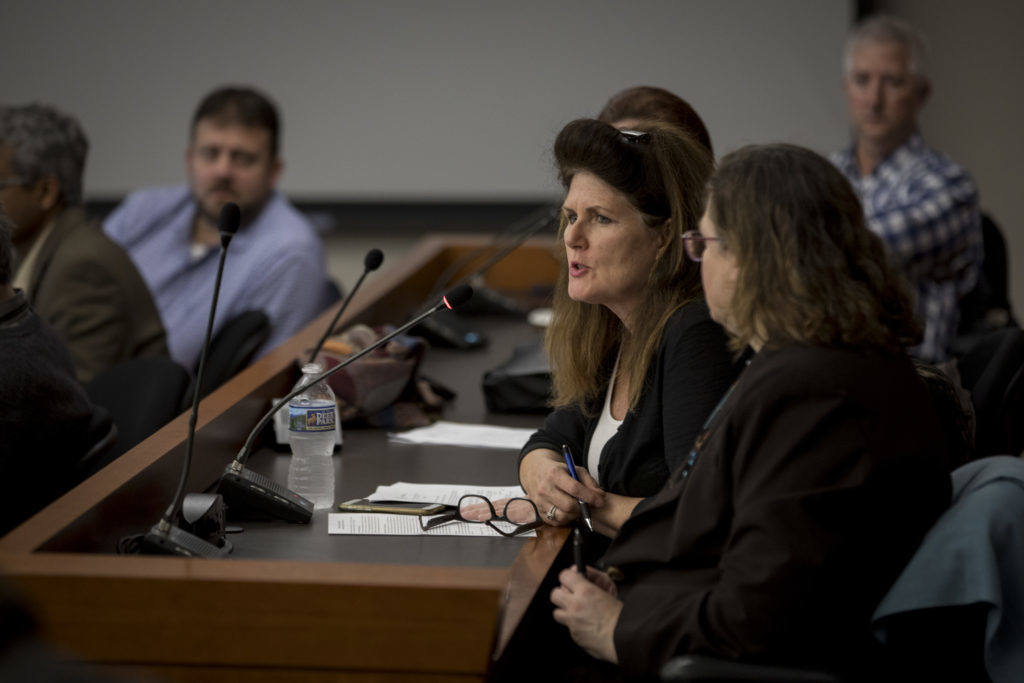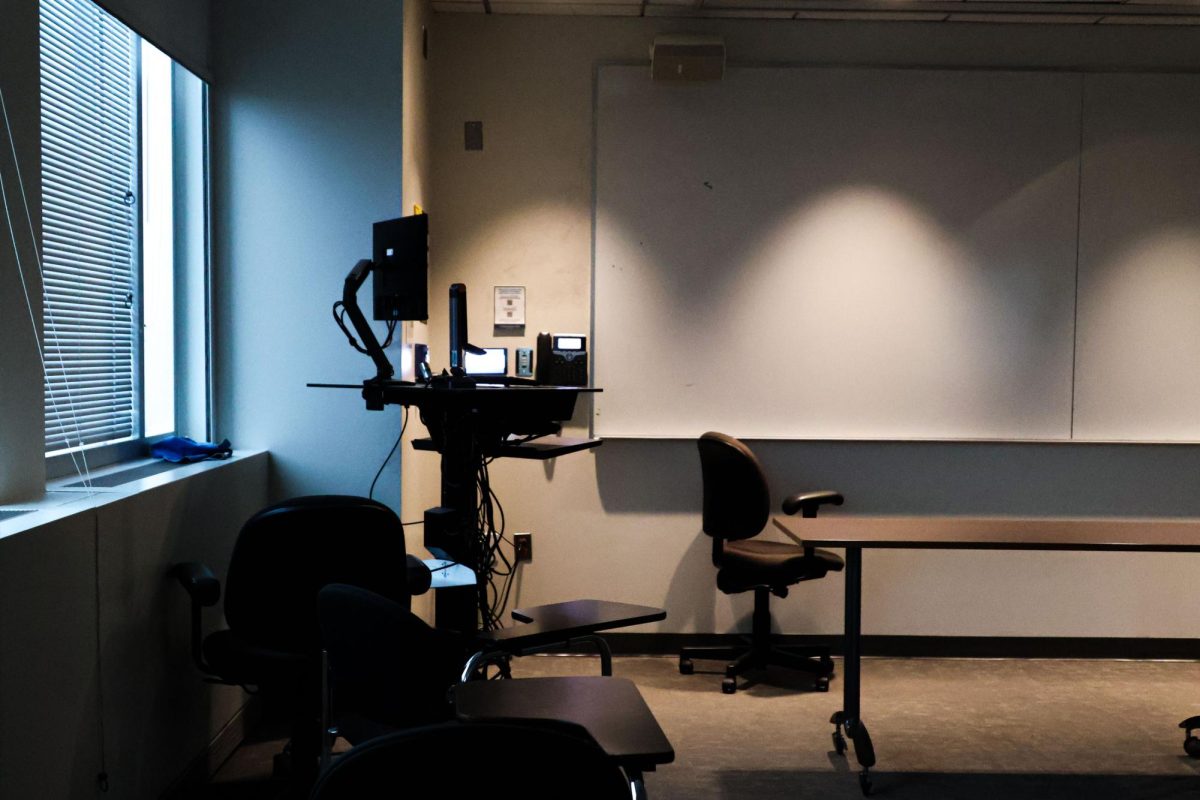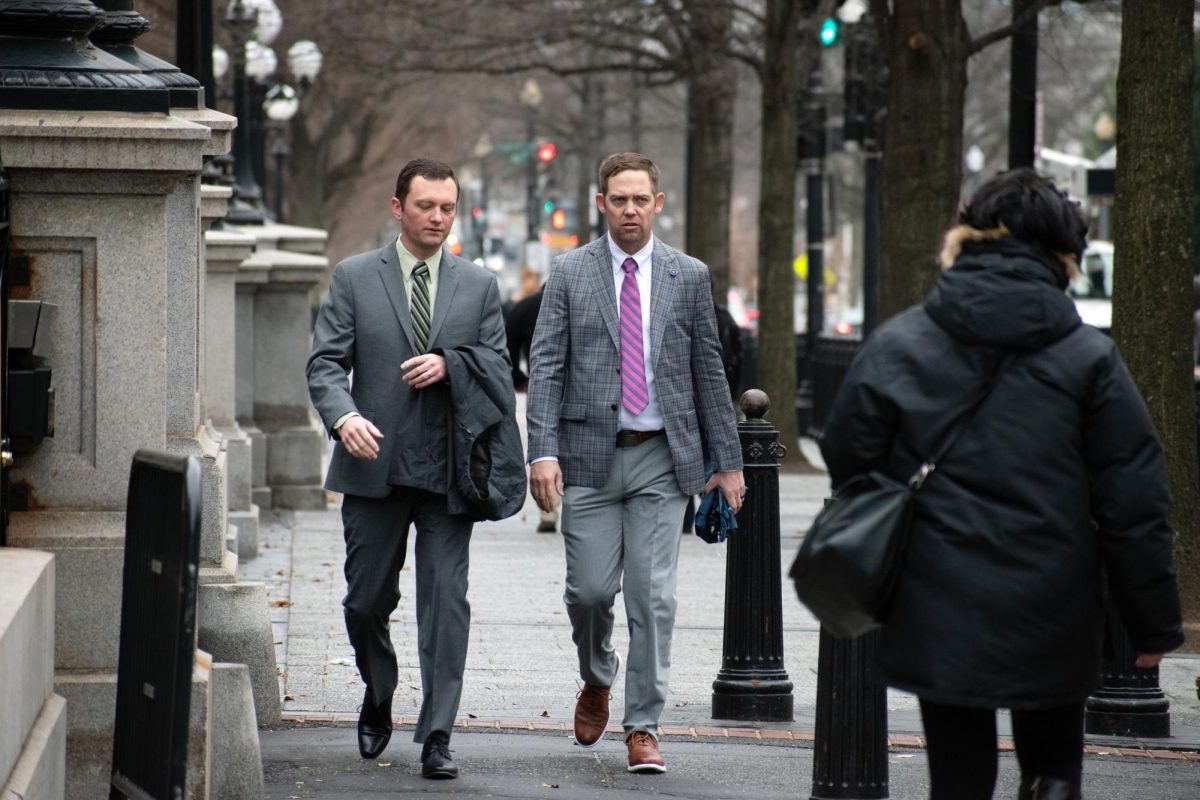The Faculty Senate on Friday voted to clarify language in the faculty code to correct “glitches” that professors have encountered in recent years.
Faculty unanimously passed two resolutions that change language in the faculty code about tenure and non-tenure track faculty promotions and the role of school deans and the provost in giving recommendations for promotion and tenure. After debate, the senate sent a resolution about the faculty grievance policy back to committee for further review.
Jeff Gutman, a professor of clinical law and the co-chair of the senate’s professional ethics and academic freedom committee, presented all three resolutions, he said, to resolve misunderstandings that have occured since the code was substantially revised in 2015.
“Both of them are non-substantive changes intended simply to clarify what the code intended,” he said. “Both are very minor technical things.”
The Board of Trustees passed three major amendments to the faculty code, which determines how professors help govern the University, in 2015, angering faculty who said they were cut out of the process.
One resolution clarified that decisions regarding appointments, reappointments and promotion of regular faculty in non-tenure track positions will be based on similar, but not necessarily identical criteria as that used for faculty in tenure-track positions.
A second resolution clarified that promotion and tenure recommendations from a dean or the provost could be eithier positive or negative in nature.
The third resolution, Gutman said, was not on the list of “glitches” but came to the floor after changes in how courts handle disputes between professors and their universities. The resolution would have clarified that faculty may enter a formal grievance procedure in a dispute with the University, but it is not mandatory. Faculty said that in recent years courts have become more willing to hear cases involving faculty disputes even if they haven’t gone through an internal grievance process and the resolution was designed to give professors the chance to take their case directly to court.
Harald Griesshammer, an associate professor of physics and member of the Faculty Senate, said the language of the resolution was vague and proposed adding an amendment. But rather than making and approving changes to the faculty code during a senate meeting, the senate voted to send the resolution back to the professional ethics and academic freedom committee before another vote.
At the end of the meeting, University President Thomas LeBlanc again urged faculty to review sexual harassment policies, echoing his statement at the November senate meeting, after what he called the “disaster” at the University of Rochester. Joel Seligman, the president of the University of Rochester, where LeBlanc began his career in academia, resigned Thursday amid intense criticism of the university’s handling of sexual misconduct allegations against a professor.
LeBlanc also asked faculty to think about new ways to measure the University’s progress against competitor universities, taking aim at the University’s list of peer institutions, which he said was not an effective means to asses GW’s standing among elite universities.
“People cannot tell you why the market basket is a market basket,” LeBlanc said. “It includes schools that are much wealthier than we are and it includes schools that are poorer than we are. It includes schools we might aspire to be, it includes schools we pray to God that we don’t fall to. It’s all over the map.”





